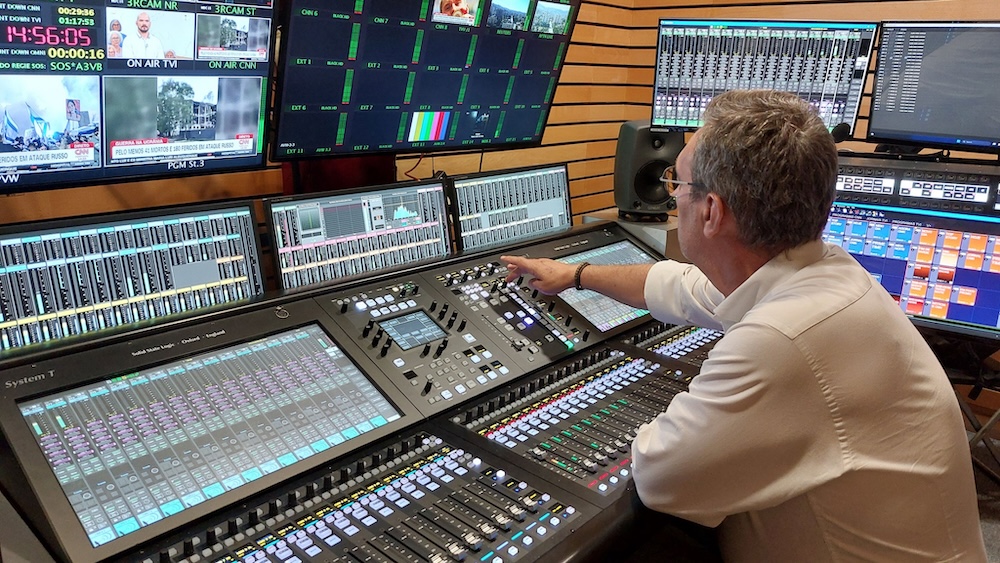Portuguese broadcaster TVI has installed an SSL System T broadcast platform and more at its multi-studio facility in Lisbon.
 Portugal’s TVI Adds SSL Broadcast Platform
Portugal’s TVI Adds SSL Broadcast Platform
Lisbon, Portugal (October 21, 2024)—Portuguese broadcaster TVI (Televisão Independente) has installed an SSL System T broadcast platform and multiple instances of SSL’s Tempest Control App (TCA) at its multi-studio facility in Lisbon.
The new system has been integrated into the TVI production facility’s IP architecture, enabling it to operate with any of the plant’s existing studios. SSL’s TCA provides additional control options for audio operators or TVI’s engineering team.
“System T was one of the few systems in the market that matched our demands in terms of sound quality, usability and redundancy,” says Ricardo Lima, architecture & new projects, broadcast IT at the technology directorate for Media Capital, TVI’s owner. “To accomplish a well-organized, expandable and efficient audio network around our facility the choice had to be IP-driven for the audio, and the software components had to be easy to use and quickly deployable in CoTS hardware or virtual machines. System T’s deep integration with Dante was a key factor in accommodating the various sources and destinations in the studios, control rooms, newsrooms and post-production studios.”
System integrator Dec.Imagen, SSL’s preferred integrator in Portugal, led by director general José Rafael Adegas, supplied the System T platform. Complementing the S500 surface and dual TE2 DSP engines, three Network I/O SB 8.8 SuperAnalogue mic/line stage boxes plus a single A16.D16 SuperAnalogue/AES3 unit interface with the Dante network. A pair of Network I/O D64 AES-to-Dante interfaces and an HC Bridge SRC high-capacity AoIP interface also integrate System T with the facility’s ST 2110 infrastructure and existing equipment.
SSL 2 MKII Audio Interfaces Unveiled at AES
One of the platform’s highlights is System T’s ease of use, Lima reports: “Audio operators quickly understand the concepts and can perform some very important configurations that usually are only available at the engineering level, such as the creation or modification of events—GPIOs, MIDI integration and button or fader actions—that are crucial to configuration scenarios such as ours. Also, the elasticity of the Tempest Engines allows us to allocate audio paths and processing resources dynamically, in real-time. Further, TE2 processors can be software licensed temporarily to give us up to 800 available DSP audio paths when we need it.”
Two instances of TCA are present on the network, one running on a hardware PC and another on a virtual machine in high availability mode. An SSL Fader Tile provides hardware control for the TCA positions.